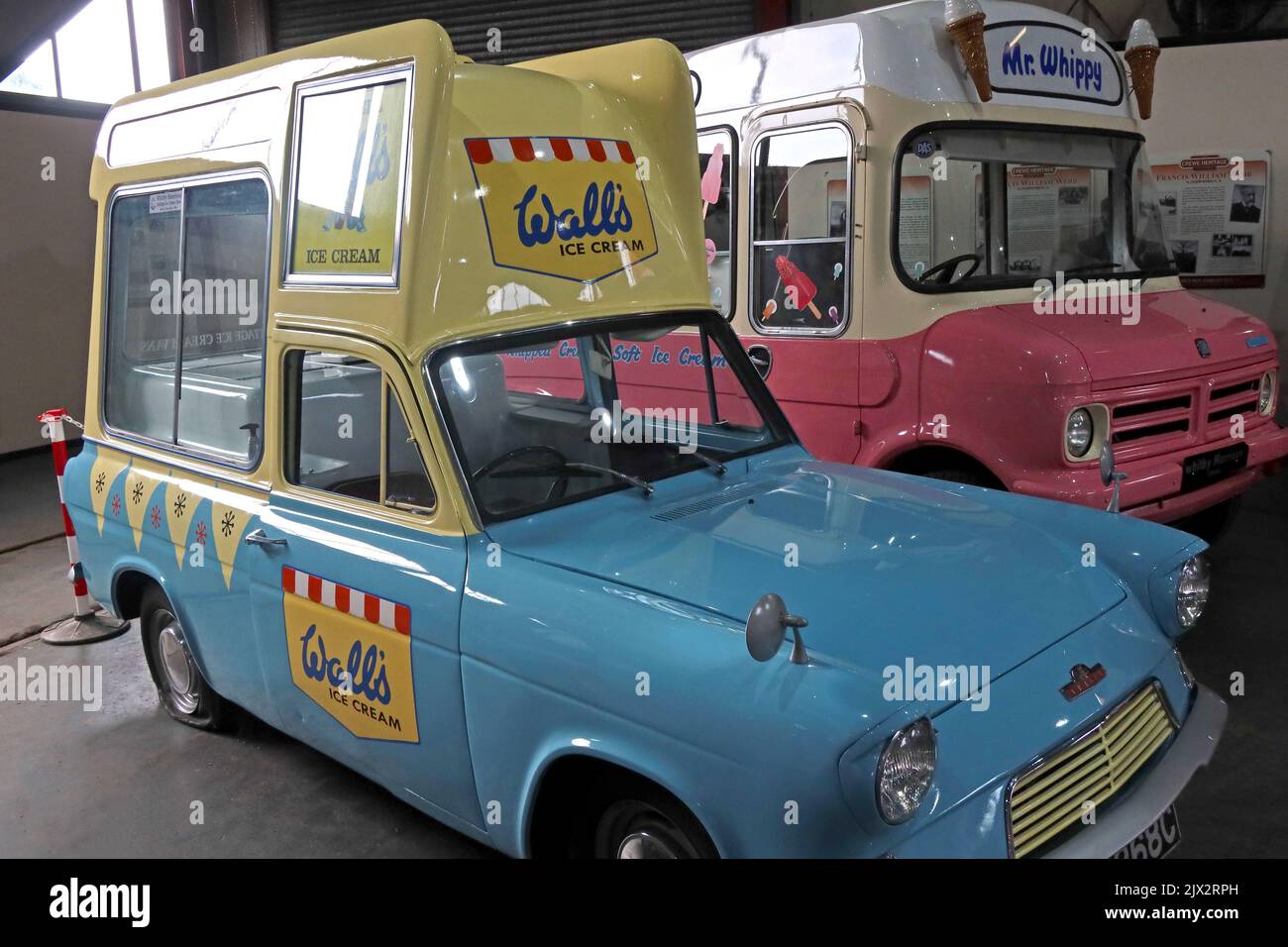Walls Ice Cream van - 1960, 1970 - Ford Thames (Anglia)

Image details
Contributor:
Tony Smith / Alamy Stock PhotoImage ID:
2JX2RPHFile size:
57.1 MB (1.9 MB Compressed download)Releases:
Model - no | Property - noDo I need a release?Dimensions:
5472 x 3648 px | 46.3 x 30.9 cm | 18.2 x 12.2 inches | 300dpiDate taken:
3 September 2022Location:
Crewe,Cheshire,England,UKMore information:
There are mainly two types of ice cream vans in the United Kingdom: a hard van, which sells scoop ice cream and is only equipped with a freezer and a soft van, which has a freezer and also a soft serve "whippy" machine for serving ice cream cones and screwballs. They are usually converted from factory standard vans with the rear cut away and replaced with a fibre glass body (to reduce the weight). Because of the British climate, running an ice cream van profitably is not only very difficult outside summer, but is also an unpredictable business. A summer heatwave can provoke a massive upturn in fortunes for a few days, but after the weather has cooled sales drop off dramatically. The need to take advantage of rare and short-lived opportunities can result in fierce rivalry between ice cream vans in coterminous areas, with the main disputes being over who is entitled to sell ice cream in a particular 'patch'. This has also led to some ice cream van vendors diversifying and selling other products such as crisps, chips, burgers or hot dogs from their vehicles at other times of the year. In a number of Local Authority areas, particularly in London Boroughs with existing street markets, street trading regulations prohibit ice cream vans from remaining in one static location. The legislation also contains powers to ban ice-cream vans from specific streets. Proposals in the current London Local Authorities Bill would allow only 15 minutes trading per vehicle per street each day. There also exists a nationwide code of practice for the use of chimes, which limits the volume to 80 dB and the duration to twelve seconds, but these are rarely observed nor enforced. Chimes must not be played more often than every three minutes, near hospitals, schools and churches when they are in use. In Scotland, ice cream vans have been used to sell smuggled cigarettes and, in the 1980s Glasgow ice cream wars, as front organizations to sell illicit drugs